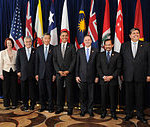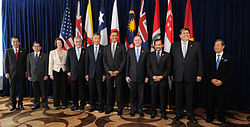 The Centre for Law and Democracy (CLD) and the International Federation of Journalists (IFJ) have prepared a Note analysing the Right to Access Information Law, No. 11 of 2013, adopted recently by the government of the Kurdistan Region of Iraq. The Law is a relatively progressive piece of legislation, garnering 98 points out of a possible 150 on the RTI Rating (www.RTI-Rating.org), which would put it in 28th place globally out of 95 countries.
The Centre for Law and Democracy (CLD) and the International Federation of Journalists (IFJ) have prepared a Note analysing the Right to Access Information Law, No. 11 of 2013, adopted recently by the government of the Kurdistan Region of Iraq. The Law is a relatively progressive piece of legislation, garnering 98 points out of a possible 150 on the RTI Rating (www.RTI-Rating.org), which would put it in 28th place globally out of 95 countries.
Click here for the Analysis
Click here to read the press release in Arabic
“It is very welcome that the Kurdistan Region has adopted this law, joining other democracies by putting in place a system for ensuring transparency in government,” said Toby Mendel, Executive Director, Centre for Law and Democracy. “While the Law is strong, there are a number of areas where it could still be improved.”
Areas for improvement include the following:
• The procedures for processing requests for information are too brief and overview in nature.
• Not all exceptions are harm tested and there is no procedure for consulting with third parties.
• There are no sanctions for obstruction of access or protection for good faith disclosures pursuant to the law.
• The Law fails to create a dedicated oversight body for information appeals (such as an information commission), instead allocating this task to the existing Human Rights Commission in Kurdistan Region.
“We welcome the adoption of this law in the Kurdistan region which will provide important protection for journalists so they can report on the performance of government and other public institutions without fear of punishment or reprisal,” said IFJ President Jim Boumelha.
For more information, please contact:
Toby Mendel
Executive Director
Centre for Law and Democracy
Email: toby@law-democracy.org
Tel: +1 902 412 0872
www.law-democracy.org
Twitter: @law_democracy



















